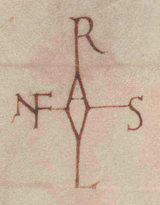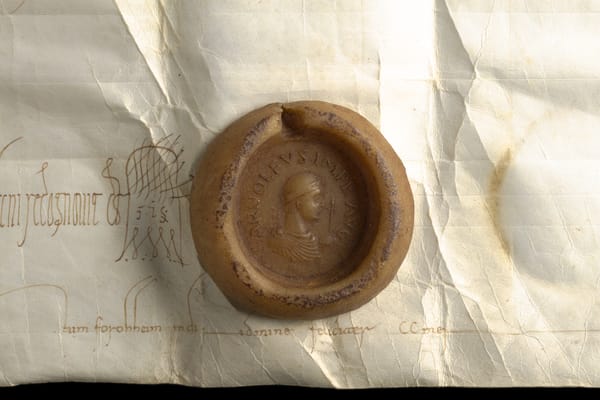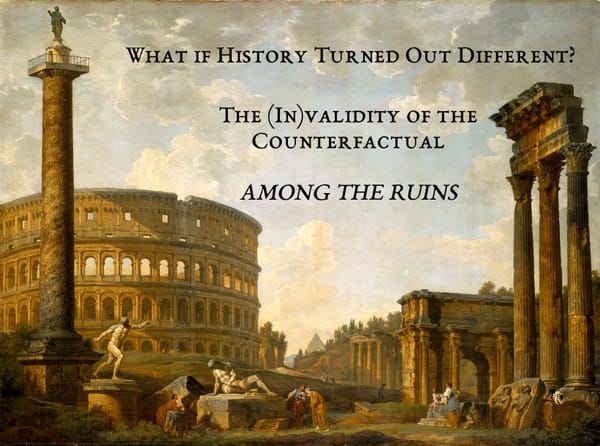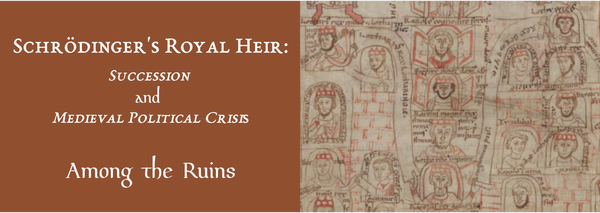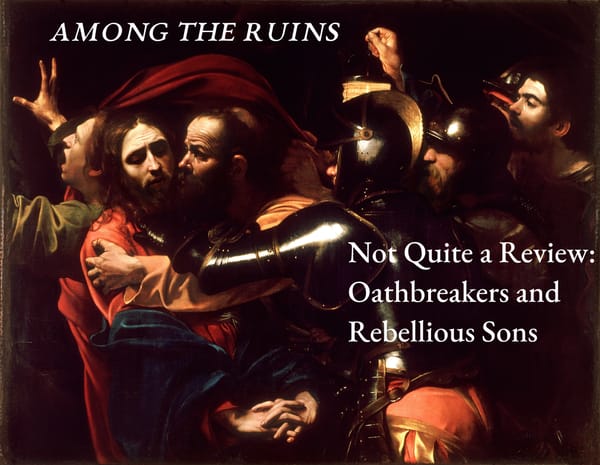Were you there? The case for knowing things about the past
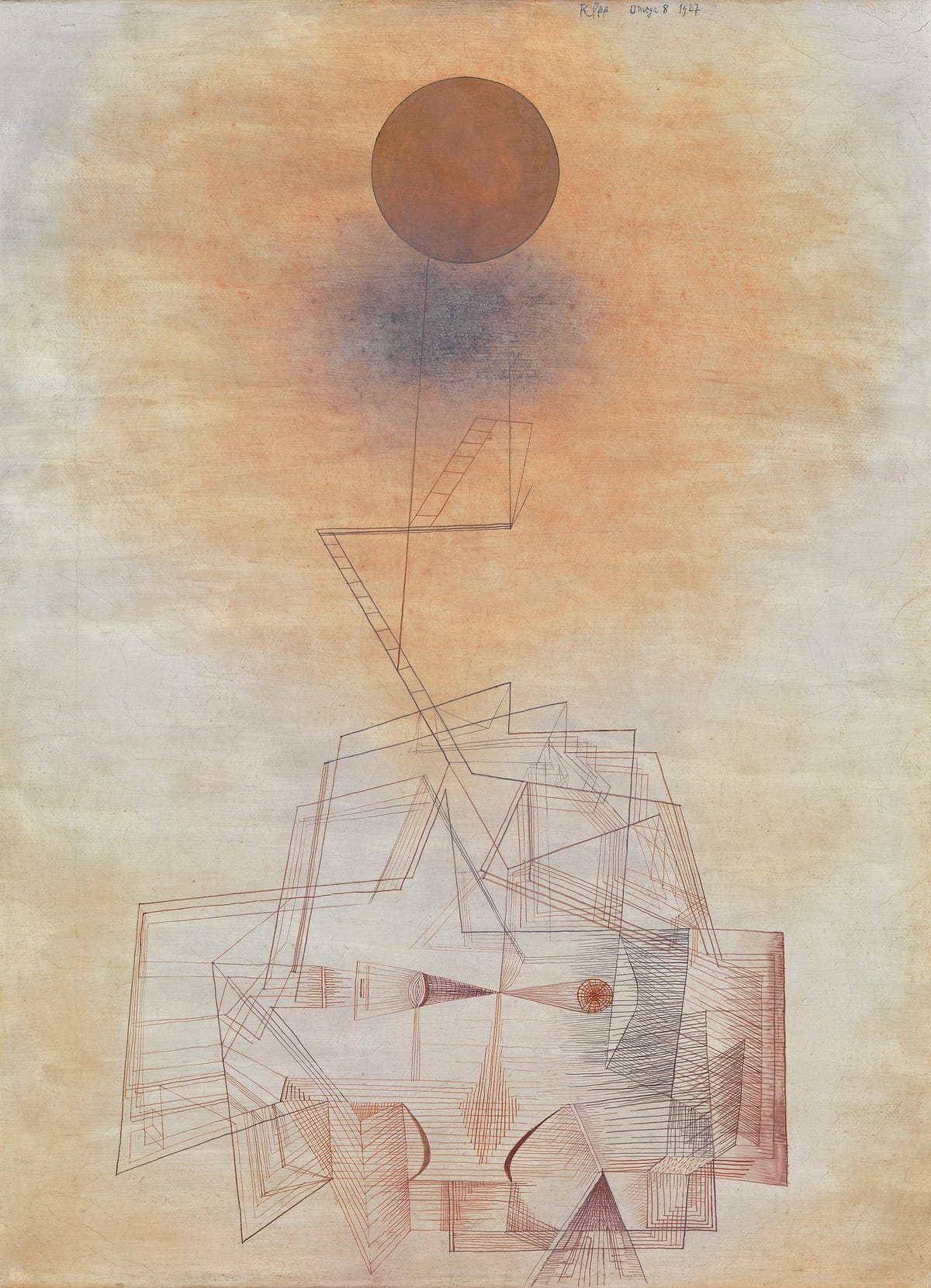
Imagine you are watching a movie set in the Middle Ages. Something seems off so you dutifully Google "movie + historical accuracy," giving you plenty of results that emphasize the mistakes in the film. You might also occasionally find the directors, costume designers, etc. defending their decisions to break historical accuracy for the purpose of the movie. I am not one to care about being overly pedantic when it comes to accuracy in my historical settings, partially because I can't tell if something is anachronistic for all time periods, but also I think it is mostly a waste of energy. Naturally, there are some real howlers like the guy reading a newspaper in Gladiator II. My issue is not with the existence of dramatic liberties or historical errors, but instead with a type of thinking that is best exemplified by this quote from Ridley Scott responding to critics of the 2023 film Napoleon:

Recently another historical drama, the BBC's retelling of the Norman Conquest, prompted similar criticisms. Here the fall back was pretty much the same: "we don't know what really happened, so we can make it up."
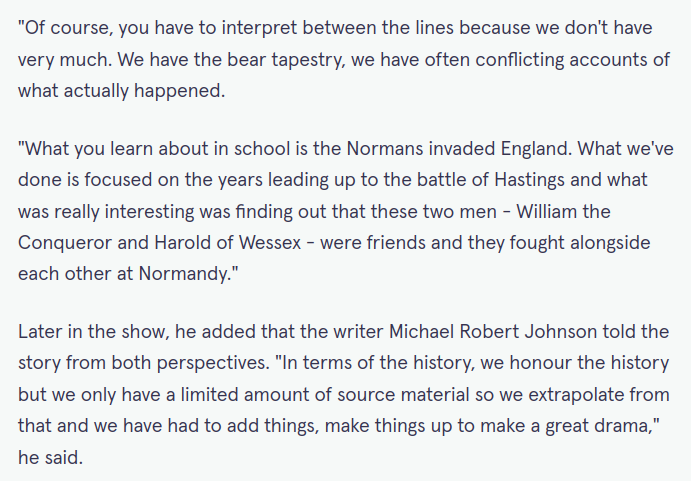
Now, I hear the immediate rebuttal: I wanted to watch a movie, not a documentary! The underlying idea is that history is "boring" and being accurate would mean a boring story. I don't exactly know what history people have encountered, but there are plenty of dramatic events in history all on their own, without needing extra help. But this also reflects a deeper dismissal of history, as either irrelevant or just as a repository for trivia and entertaining settings.
History in the Past
It isn't possible to discuss the above quoted statements without explaining a bit of the trajectory of historical scholarship since the 19th century. I should say at the outset that this isn't comprehensive, and nowhere near a complete account, but what I think are important trends and shifts. It is often stated that Leopold von Ranke established the more modern historical method which emphasized source analysis to get at history "as it really happened" (wie es eigentlich gewesen) by weighing the veracity of various accounts and sources. Yet Ranke has his critics (some of which I think are a bit overblown) and historians would not subscribe to the simple idea that we can just put all the sources together and create a coherent true account of the past.
Many of this generation of historian were overly reliant on narratives of progress: historical research mattered in so far as telling the reader how the ancient became the modern.[1] Often, this is grounded in the nationalism of the 19th and early 20th centuries. There is also a sense of neutrality embedded in this idea, that the historian should work neutrally to uncover the most correct past. However this often concealed decidedly teleological and ideological perspectives. Marc Bloch likened this as the historian as "a sort of judge in Hades, charged with meting out praise or blame to dead heroes."[2]
When Bloch wrote The Historian's Craft, while participating in the French Resistance of WWII, he questioned the avowed stances of neutrality and seeming limits of history. Recounting his own experiences, Bloch suggests that the best historians are not simply concerned with narrating the past, but bringing it to life by utilizing their own understanding of modern life. Bloch writes about how "I have many times read, and I have often narrated, accounts of wars and battles. Did I truly know, in the full sense of that word, did I know from within, before I myself had suffered the terrible, sickening reality, what it meant for an army to be encircled, what it meant for a people to meet defeat?"[3]
Just as the position of the historian to their object of study changed, so too did our understanding of texts in general. This is often referred to as the "linguistic turn" which destabilized the "objective" reality postulated by Ranke and others. If previously historians believed they could use the sources to create an objective version of what had really happened, the linguistic turn argued that we can only engage with the reconstructions of the past as mediated through our sources. In such a conception of knowledge we cannot know exactly what happened in the past.
This famously (in relative terms) became a serious point of contention over the meaning of medieval rituals. Phillipe Buc wrote a book entirely about how the study of rituals does not allow us to reconstruct what medieval rituals were because of our modern perspective and the inability to go beyond the sources.[4] Buc was challenging, above all, the "function" of ritual as something so mediated by textual authors to be unrecoverable as a standard practice.[5] Of course, this all borrows from works of sociology and literary criticism, especially Pierre Bourdieu and Michel Foucault. Quentin Skinner even argued that "there is still an underlying conceptual confusion in any attempt to focus on an idea itself as an appropriate unit of historical investigation."[6] That is, if ideas and texts are situated within contexts and their meaning derived from the complex of surrounding ideas, then the texts do not simply represent reality, but a construction.

Historical Misconceptions
It is here that the root of the modern misconception of historians lay, in my opinion. In essence, both of the above statements about how we cannot know what really happened stem from a common misconception about how historians work and what they do. If we take the study of texts as constructing discourses to their most extreme, then there is no accessible reality, only whatever we create in the present. That is, people will argue that we cannot access the past directly, so everything is just a "story." This is more pronounced by bad-faith right wing attacks on "revisionsim" that assumes there is an unbiased and "obvious" historical truth, postulating the "common sense" positivism of Ranke and others as the correct method of doing history. Often, this is about using the medieval as a foil for the modern, to contrast the supposed unaesthetic or wholesome modern world with the more enlightened and "civilized" ancient one. Beware the Roman statue profile picture accounts with names like Remember the West or whatever. Yet left-wing audiences are not immune to this, most obviously in the case of an all-powerful oppressive Catholic Church (my personal favorite was the person who insisted Roman statues survive because early Christians were too stupid to use ladders). The Christian past reads more as conspiracy than reality, with Christians and the Church viewed as modern and highly cynical or self-interested.[7]
These views often depend on the successful culmination of a pro-STEM educational policy that casts the natural sciences as "hard" and therefore requiring expertise, while just about anyone can pick up a text and simply read it for historical fact. The internet also is specifically designed to reward obliterating nuance and context. The flattening of everything into whatever is topical makes for very bad history. People are trained that technically right is good enough, as long as it is possible than it is a worthwhile opinion.
There is also the inverse issue, that any issue with an approach or data means it is fundamentally unknowable. As I write this I listen to RFK Jr claim that he doesn't know how many Americans died from COVID-19 or were saved by the vaccine because there are undisclosed "issues" with the data. One can almost always find some reason there is an exception, an issue, or a problem with an approach or dataset. Yet that isn't how knowledge works. The real question is what the scale of that error or issue. If it introduces a 1% difference in the final numbers, that is probably fine! If its 80%, you have an issue. The endless technicalities and exceptions only serve a single purpose: to discredit the idea that anything can be known. Fundamentally all historians and scientists agree on a simple premise: that we can and do know things about the world. For historians, however, they are discarded because the sources can be "directly" accessed, meaning that just anyone can read them and draw their own conclusions.
A big part of this is probably also the paywall of information. It is very easy to find an outdated textbook online that will give you a nice clean narrative of the past, of linear progress. Add in the constant insistence on a "lack of sources" which really often means "sources that aren't translated or easily available via Google search." What you get is people who do surface level reading and think they have discovered all there is to know, that experts are simply putting spin on a source to favor a specific political outcome.
While what prompted this post is my annoyance at directors of media in historical settings pretending that there is nothing we can know about the past, so it is fine to make things up, this is a broader problem with public interactions with history. Take a look in comment sections where historical evidence is used decontextualized with retorts to "study history" or that it is "clear." History is rarely clear, the reason we have any knowledge of the past is often the difficult spade work of historians, archaeologists, and others who have compiled sources, figured out how best to understand and use them, and make them accessible. If you wanna fudge things a bit because you think your TV show works better if a person is assassinated instead of dying in an accident, by all means go ahead, but don't then turn around and claim it was simply because there is no way to really know what happened.
History in the Present
So how do historians actually know things about the past? Historians are famously a methodologically agnostic group, so it can sometimes be difficult to see what exactly a historian is doing. The postmodern turn has in some ways been adopted by historians, but not to its full conclusion. Most acknowledge that what we are left with is the textual remnants of particular constructions, but most continue to operate as if they can tell us something about the past. In reality, how historians work with sources is inherently filled with decisions. Putting aside that a source needed to be transcribed, translated, etc., all actions with editorial decisions involved, historians do not simply read a source and come up with any interpretation they want (at least good ones don't). Instead, they trace ideas or events through multiple sources and attempt to situate an explanation contextually. Meaning that historians are not terribly interested in whether something can be found one time in any source, but more about what is the prevailing norm.
At the same time, it requires carefully understanding what an author means in a specific text. This means not falling into the trap of assuming each author is expounding a coherent doctrine on a certain issue, but these ideas could shift, be wrong, or be confused.[8] When I seek to understand Arnulf's ideology of kingship, I am also contextualizing it within a bigger trend of kingship from his uncle and grandfather. What I am doing is not making up a story, but contextualizing the sources in a new way. This may mean investigating what baptism meant to 9th century contemporaries, or how authors used a particular word in given contexts. That is, I don't assume that concepts and ideas from the present automatically worked the same in the past.
Needless to say, this is hard work, and it can appear that disagreements among historians are simply because of subjectivity and political agendas. Sometimes, that is true, but not usually. Often, there are serious debates about the actual meaning of a series of texts, or even a phrase within a text. In fact, there is debate about the meaning of Ranke's famous phrase that I mentioned above! There is a large difference between disagreement over the interpretation of a text and that we can't know what happened in the past. We may not be able to recover "what really happened" but we can try to get as close as we can. Using contextual analysis and critical attention to motives, source survival, and physical production, the historian can make an argument about what they think was the most likely scenario.
Historians also inevitably build on the work that came before them, refining or refuting arguments. This doesn't mean they are needlessly revising past interpretations, supplanting them with bad "modern" arguments. Instead, the boundaries of our knowledge are continually expanding, with new approaches and methodologies opening new avenues for investigating the past. Sometimes this means inverting or discarding an older paradigm. This is the discipline working as intended!
When we discuss the earliest historians, they may have been working with incomplete source bases, or with limited access. In some cases we have now come to learn that sources believed to be authentic are in fact forgeries. The list goes on. We don't need to judge older generations of scholars for getting things wrong, because invalidating an argument doesn't necessarily invalidate a scholar or their craft. Scholars in the 19th and 20th century were essential in laying the groundwork for later approaches, either by their critical analysis of topics for the first time, or in the production of editions.
The next time you see someone fall back on the idea that we can't know about the past, take a moment to reflect on why they are claiming that. Are they an expert that has viewed the sources, or are they simply trying to deflect criticism?
Thanks for reading Among the Ruins! If you haven’t subscribed, please do so below and you can do your part in defeating the algorithm!
- For instance Ernst Dümmler's dissertation on Arnulf, dedicated to Ranke, notes the importance of Arnulf for Germany.
- M. Bloch, The Historian's Craft, trans. P. Putnam (New York, 1953), p. 139.
- Bloch, The Historian's Craft, p. 44.
- P. Buc, The Dangers of Ritual: Between Early Medieval Texts and Social Scientific Theory (Princeton, 2001)
- For a thorough critique see G. Koziol, "Review Article: The Dangers of Polemic: Is Ritual Still an Interesting Topic of Study?" Early Medieval Europe 11, no. 4 (2002): 367-388.
- Q. Skinner, "Meaning and Understanding in the History of Ideas," History and Theory 8, no. 1 (1969), p. 36.
- As I was writing I came across this review of a book that takes a cynical view of the Christian past, for full disclaimer, I have not read this book but am basing it off the reviewer's comments: https://www.theguardian.com/books/2025/sep/05/domination-by-alice-roberts-review-a-brilliant-but-cynical-history-of-christianity
- Skinner, "Meaning and Understanding," pp. 16-22.

